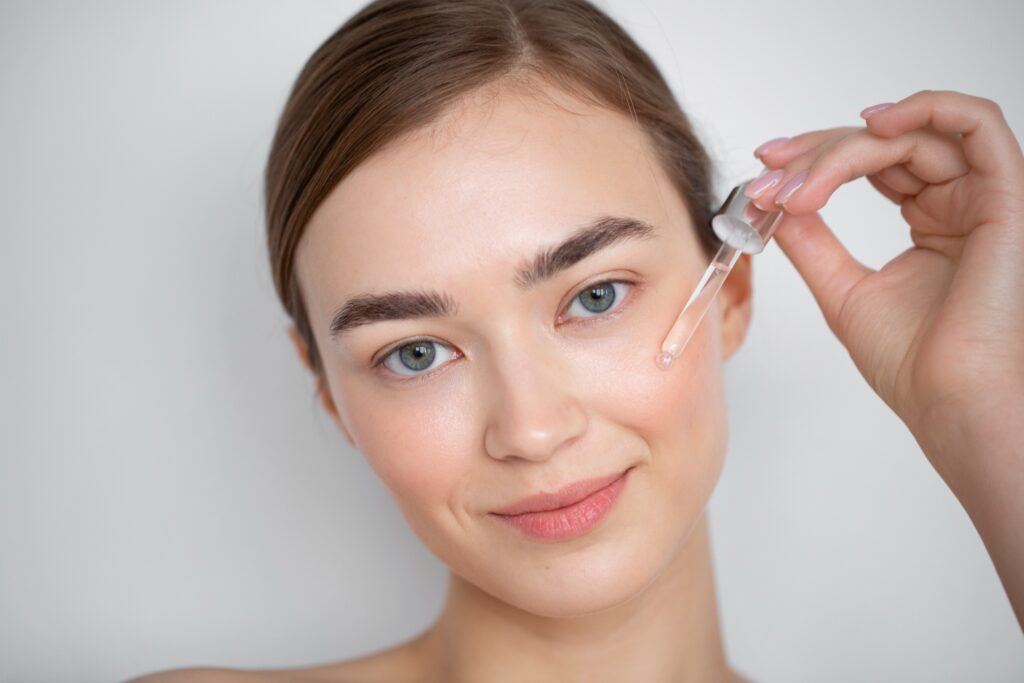
In India’s diverse climate—whether it’s the harsh winter air of the north or the sweltering humidity of the south—our skin goes through a lot. This constant exposure to varying conditions can leave your skin feeling dry, irritated, or oily. One of the most effective solutions to maintaining healthy, glowing skin amidst these challenges is incorporating a hydrating serum into your daily skincare routine. But why is a hydrating serum considered essential, and what are its benefits? Let’s dive in and understand why everyone, regardless of skin type, should consider adding this vital step to their skincare.
What is a Hydrating Serum?
A hydrating serum is a lightweight, fast-absorbing liquid that penetrates deep into the skin to provide intense hydration. Unlike moisturizers, which sit on the surface of the skin, serums are designed to deliver concentrated ingredients directly into the skin layers. The use of key ingredients like ceramides, jojoba oil, retinol, AHA (alpha hydroxy acids), and BHA (beta hydroxy acids) makes it an indispensable product in your daily regimen.
The Benefits of a Hydrating Serum
1. Deep Hydration
In India, where the weather ranges from dry to excessively humid, your skin needs more than just a basic moisturizer. A hydrating serum helps maintain the skin’s moisture balance by delivering hydration where it’s needed most—the deeper layers of the skin. Ceramides in serums work wonders in keeping the skin’s barrier intact, locking in moisture and preventing water loss.
Example: If you live in a city like Delhi, where winters are dry, applying a hydrating serum before your moisturizer can keep your skin supple throughout the day. Similarly, in Mumbai’s sticky monsoon, a serum helps regulate oil production while hydrating the skin.
2. Soothes and Heals
Certain ingredients in hydrating serums, such as oatmeal and shea butter, have anti-inflammatory properties that calm irritated or sensitive skin. For those who suffer from acne, adding a serum with tea tree oil can help reduce redness and inflammation.
Example: Imagine you’ve spent a sunny day in Chennai, and your skin feels irritated and dry. Using a serum enriched with oatmeal and shea butter can help soothe the skin and reduce redness, giving your face an instant calming effect.
3. Fights Premature Aging
Hydrating serums often include anti-aging ingredients like retinol, which is renowned for its ability to promote skin cell turnover, reduce fine lines, and improve overall skin texture. Regular use of a serum with retinol can give your skin a youthful glow, making it look plump and healthy.
Example: For someone in their late 20s or early 30s, like many busy professionals in Bangalore, signs of aging can appear early due to stress and pollution. Incorporating a serum containing retinol can help reduce fine lines and wrinkles, keeping your skin youthful for longer.
4. Helps with Skin Concerns
Whether you’re battling acne, pigmentation, or dullness, a hydrating serum can help. Ingredients like AHA and BHA are commonly found in these serums and work as gentle exfoliants to remove dead skin cells, clearing out clogged pores and brightening the skin.
Example: If you’re dealing with acne in the humid weather of Kolkata, using a serum with AHA and tea tree oil can help unclog pores while providing much-needed hydration. Over time, you’ll notice fewer breakouts and clearer skin.
How to Incorporate a Hydrating Serum in Your Skincare Routine
Here’s the golden rule: always apply your hydrating serum after cleansing and before moisturizing. This ensures that the serum can penetrate the skin deeply and work its magic. Follow these simple steps:
1. Cleanse your face with a gentle face wash to remove dirt and oil.
2. Apply a few drops of your chosen hydrating serum, focusing on areas prone to dryness or irritation.
3. Once absorbed, follow up with a moisturizer to lock in the hydration.
4. Always apply sunscreen in the morning to protect your skin from sun damage.
Choosing the Right Hydrating Serum for Your Skin Type
When choosing the best hydrating serum for your skin, it’s important to consider your skin type:
Final Thoughts: Why You Need a Hydrating Serum
Incorporating a hydrating serum into your skincare routine isn’t just about adding another step; it’s about giving your skin the deep hydration and nourishment it needs to look and feel its best. Whether you’re battling the dry winters of Delhi or the sticky monsoons of Mumbai, a hydrating serum is the perfect solution to keep your skin glowing, healthy, and well-balanced.
If you’ve been wondering whether to invest in one, the answer is simple: your skin will thank you for it!
